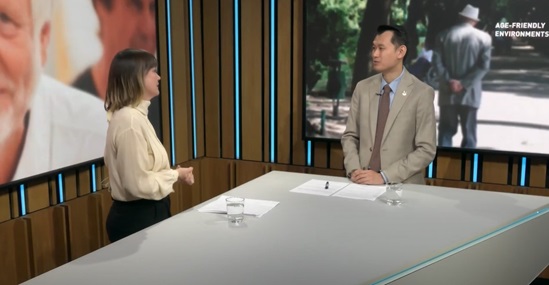Development of the Strategy: Ageing is Living
In the WHO European Region, people are living longer than ever – but not always healthier. To close the gap between longevity and well-being, WHO/Europe is developing the WHO European Strategy on Ageing is Living: Promoting a Lifetime of Health and Well-being (2026–2030). This is among the 5 strategic priorities under the second European Programme of Work 2026–2030 (EPW2), reflecting our shared commitment to healthier, longer and more equitable lives for all.
What does WHO do?
WHO works with Member States, cities, civil society, researchers and communities to:
- promote healthy ageing and well-being at all stages of life;
- support equitable and sustainable health and care systems;
- recognize and harness the contributions of older people; and
- foster age-friendly, inclusive environments that challenge ageism and strengthen solidarity.
Why develop a strategy?
Population ageing is accelerating across the Region. By 2050, the number of people aged over 80 will more than double, placing pressure on health and care systems, housing, urban planning, and social cohesion. The Strategy will guide coordinated action to turn these challenges into opportunities, ensuring longer lives are also healthier and more fulfilling lives.
How is WHO developing the Strategy?
WHO is building the Strategy through:
- stakeholder consultations with governments, cities and communities, civil society, experts, and research networks including WHO collaborating centres;
- regional surveys to prioritize needs and actions; and
- reviews of evidence and best practices to ensure impact and feasibility.
The Strategy will be grounded in data, informed by lived experience, and shaped by those delivering and receiving care. By listening, learning and acting together, we can all ensure that in the WHO European Region, ageing is living.






